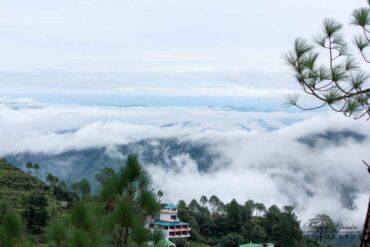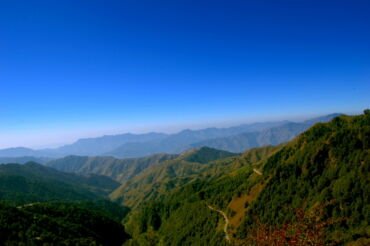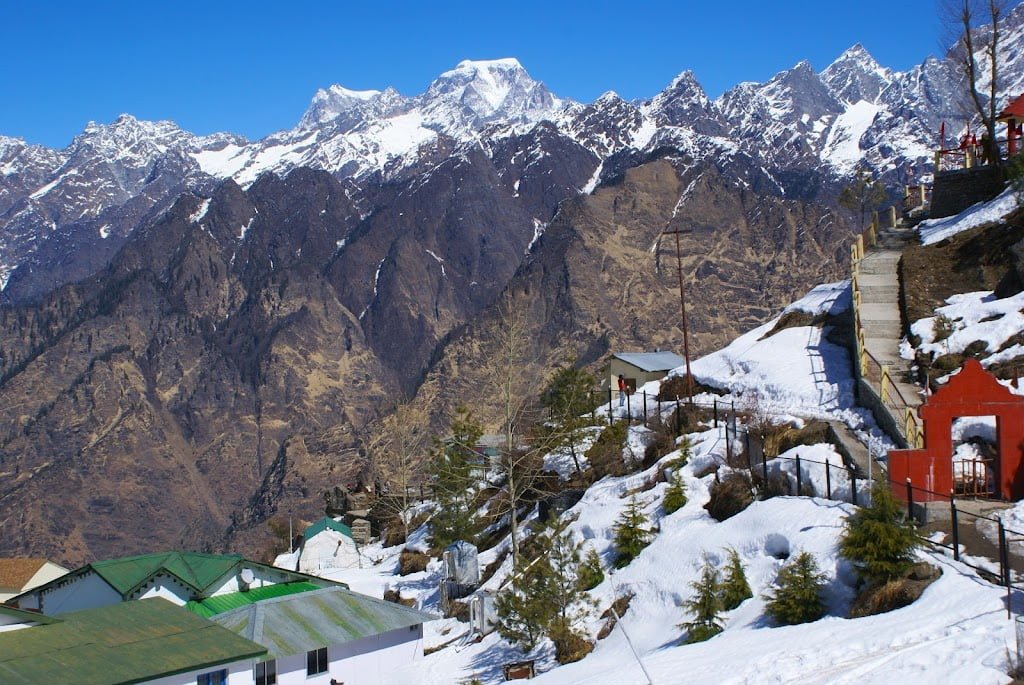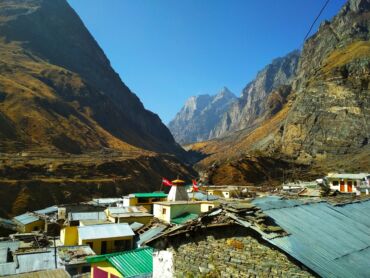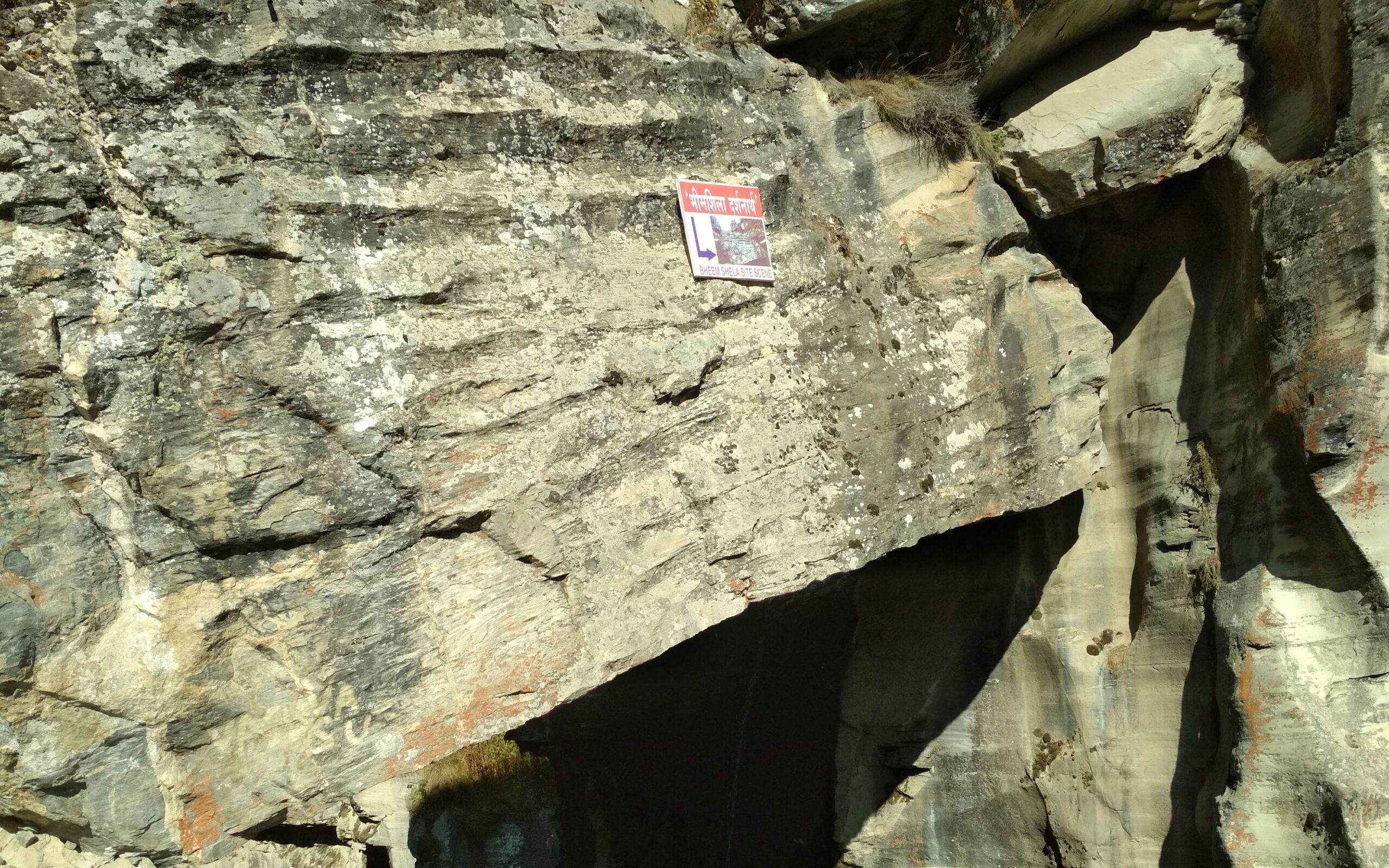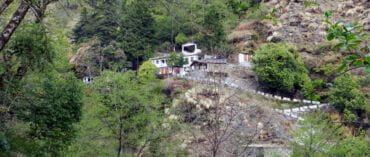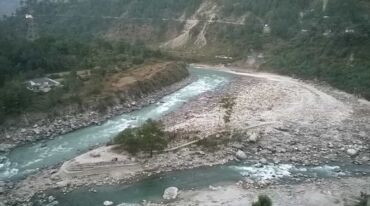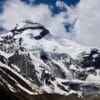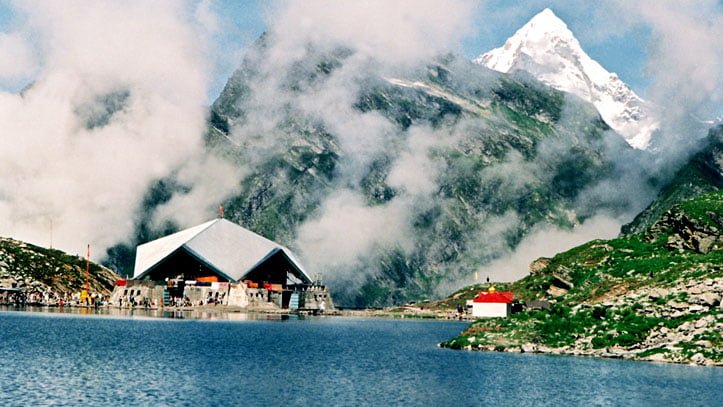6 Best Places to visit in Lansdowne Uttarakhand
There are many different beautiful and historic destinations in Lansdowne that thousands of tourists visit every year. Lansdowne is a peaceful and beautiful hill station town. Lansdowne is a hill station located in the Indian state of Uttarakhand. It is known for its serene and picturesque environment, which makes it a popular tourist destination and hill station of Uttarakhand. Every year, thousands of tourists from different parts of India as well as from other countries visit Lansdowne. It is a perfect hill station to enjoy your summer and winter vacations. Lansdowne is also a popular honeymoon and winter destination in Uttarakhand. Lansdowne is situated at an elevation of 1,706 meters above sea level and is surrounded by lush green forests and the beautiful Himalayan ranges.
Why visit Lansdowne
One of the main reasons why Lansdowne is famous is because of its history. The town was developed by the Britishers as a hill station, and many British officers served here during the colonial period. The town has colonial architecture and bungalows, many of which have been converted into heritage hotels, that offer a glimpse into the town’s past and attract history buffs and architecture enthusiasts.
Another reason why Lansdowne is famous is its natural beauty. The town is home to several trekking and hiking trails that take visitors through lush green forests and offer breathtaking views of the Himalayas. The town’s serene environment and the opportunity to connect with nature make it a popular destination for those looking to escape the hustle and bustle of city life.
Lansdowne is also famous for its temples and other religious sites. The Tarkeshwar Mahadev Temple is a popular pilgrimage destination, and the town is home to several other temples such as the St. John’s Church, War Memorial, and Tip n Top viewpoint. These places offer visitors a chance to learn more about the town’s rich cultural heritage and explore its religious and historical significance.
In addition to these, Lansdowne also offers a wide range of outdoor activities such as rock climbing, paragliding, camping, bird watching, and boating. With its picturesque landscapes, rich cultural heritage, and wide range of activities, Lansdowne is a perfect destination for those looking to experience the natural beauty of the Himalayas and reconnect with nature.
Places to visit in Lansdowne
Below are some popular places to visit in Lansdowne where you can enjoy the beauty of Lansdowne hill station and nature’s beauty. Lansdowne is also popular for adventure sports and boating.
1 – Tarkeshwar Mahadev Temple
Tarkeshwar Mahadev Temple is a popular Hindu temple located in Lansdowne, which is a popular hill station in the Indian state of Uttarakhand. The temple is dedicated to Lord Shiva and is situated in a beautiful natural setting surrounded by lush green forests.
How to reach Tarkeshwar Mahadev Temple
To reach the temple, you can take a bus or drive to Lansdowne in your own vehicle. Lansdowne is well-connected by road from major cities like Rishikesh, Dehradun, and Srinagar. From Lansdowne, you can take a taxi or trek to the temple, which is around 4 kilometers away from the main city of Lansdowne.
Best time to visit Tarkeshwar Mahadev Temple
The best time to visit the temple is during the months of May to June or September to October. These months offer pleasant weather and clear views of the surrounding mountains.
It is also worth noting that the temple remains closed during the monsoon season.
Overall, Tarkeshwar Mahadev Temple is a must-visit for anyone interested in exploring the rich cultural and religious heritage of Uttarakhand, as well as for anyone looking for a peaceful and serene getaway amidst nature.
2 – St. John’s Church
St. John’s Church is a beautiful and historic place of worship located in Lansdowne Uttarakhand. The church is dedicated to St. John the Baptist and is a popular tourist spot for people who want to explore the rich cultural and religious heritage of the region.
St. John’s Church is a place of worship dedicated to St. John the Baptist, a figure from Christianity who is venerated as a prophet in the New Testament. According to the Bible, John the Baptist was a cousin of Jesus Christ and was known for preaching repentance and baptizing people in the Jordan River. He is also recognized as one of the most important figures in Christian history and is honored by many denominations, including the Catholic, Orthodox, and Anglican churches.
The church in Lansdowne, Uttrakhand is named after St. John the Baptist and it is one of many churches around the world that are dedicated to him. It is a historical and architectural monument built in the Gothic style of architecture. It is also used as a place of worship for the Christian community of the area, and a tourist spot for visitors interested in the cultural and religious heritage of the region.
Visiting St. John’s Church is a great way to learn about the history and culture of Lansdowne and Uttarakhand, as well as to take in some of the beautiful scenery of the area. The church is located in the heart of the town, so it’s easy to reach by foot or by taking a local bus or taxi.
Best time to visit St. John’s Church
The best time to visit the church is during the months of May to June or September to October, when the weather is pleasant and the views of the surrounding mountains are at their best. If you plan to visit the church with kids, they will surely appreciate the historical and architectural significance of the church, and it will be an educative and fun experience for them
Overall, St. John’s Church is a must-visit destination for anyone interested in learning about the history and culture of Uttarakhand and India, as well as for anyone looking for a peaceful and serene getaway amidst nature.
3 – Bhulla Lake
Bhulla Lake is a popular tourist destination located in Lansdowne hill station, which hundreds of tourists visit every day, especially during the monsoon season. The lake is known for its picturesque setting, surrounded by lush green forests, and offers beautiful views of the surrounding mountains. If you are a nature lover, photographer, or bird lover then you are going to love this lake.
Bhulla Lake is also popular for boating, you can hire a boat in Bhulla lake and enjoy the beauty of the lake and the surroundings.
How to reach Bhulla Lake
To reach Bhulla Lake, you can take a bus or drive to Lansdowne, which is well-connected by road from major cities in the region. From Lansdowne, you can take a taxi or trek to the lake, which is located around 2 kilometers away from the town.
Best time to visit Bhulla Lake
The best time to visit the lake is during the months of May to June or September to October. These months offer pleasant weather and clear views of the surrounding mountains, which make for a great time to enjoy the beauty of the lake and the surrounding area.
It is also worth noting that the lake remains closed during the monsoon season.
Overall, Bhulla Lake is a must-visit destination for anyone interested in exploring the natural beauty of Uttarakhand. It’s a great spot for a peaceful picnic, boating, and a picturesque photo session. It’s also a popular spot for bird watching, as the lake is home to a variety of migratory birds during the winter months.
4 – War Memorial
The War Memorial in Lansdowne, Uttarakhand, is a monument dedicated to the soldiers of the Garhwal Rifles which is one of the regiment Indian Army who lost their lives in the line of duty. The War Memorial is located on the parade ground of the Garhwal Rifles Regimental Centre Lansdowne, and it is an important site for both the locals and the military personnel.
It is also worth noting that the War Memorial is open to visitors all year, but the parade ground is only open to visitors during the months of October to June. It’s important to check for the timings and other guidelines before visiting the War Memorial.
The War Memorial is a moving tribute to the brave soldiers of the Indian Army(Garhwal Rifles), and it is a must-visit destination for anyone interested in learning about the history and culture of Uttarakhand and India, as well as for anyone looking for a peaceful and serene getaway amidst nature.
How to reach War Memorial Lansdowne
To reach the War Memorial, you can take a bus or drive to Lansdowne, which is well-connected by road from major cities in the region. From Lansdowne, you can take a taxi or trek to the War Memorial, which is located within the Garhwal Rifles Regimental Centre, which is around 2 kilometers away from the town.
Best time to visit War Memorial
The best time to visit the War Memorial is during the months of October to June when the weather is pleasant and the views of the surrounding mountains are at their best. During this time, you can also see the parade ground of the Garhwal Rifles Regimental Centre, which is also an important spot for the Indian Army.
5 – Tip N Top
Tip N Top is another popular tourist place in Lansdowne, in the Indian state of Uttarakhand. It is a viewpoint that offers panoramic views of the surrounding beautiful mountains and valleys. This place is also known for its scenic beauty and the cool breeze that blows across the viewpoint.
Overall, Tip N Top is a must-visit destination for anyone interested in exploring the natural beauty of Uttarakhand. It’s a great spot for a peaceful picnic, photography, and enjoying the panoramic view. The spot is also popular for trekking, and the trek to the viewpoint is considered a moderate one, so it’s suitable for people with moderate hiking experience.
How to reach Tip N Top
To reach Tip N Top, you can take a bus or drive to Lansdowne, which is well-connected by road from major cities in the region. From Lansdowne, you can take a taxi or trek to the viewpoint, which is located around 4 kilometers away from the town.
Best time to visit Tip N Top
The best time to visit Tip N Top is during the months of May to June or September to October. These months offer pleasant weather and clear views of the surrounding mountains, which make for a great time to enjoy the beauty of the viewpoint.
It is also worth noting that during the monsoon season, the trek to Tip N Top can be challenging as the trail can be slippery and muddy.
So these were some best places to visit in Lansdowne where you can spend your time with your friends, family, or loved ones. Lansdowne is also a popular destination for honeymoon.
6 – Bhim Pakora
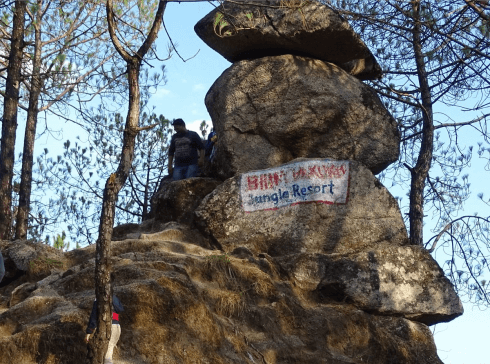
Bhim Pakora is a prominent location near Dhura in Lansdowne, Uttarakhand. This location is 2 km from Gandhi Chowk and there are several mythological stories attached to this site. It is said by historians and local peoples that the Pandavas resided here in ancient times and cooked throughout their exile.
According to a famous story, Bhim arranged the rocks to prevent them from collapsing on top of one another. Tourists can visit this historic and holy rock and anyone can move this rock with his/her finer, but this rock will never fall. If you are fascinated by Indian mythology, then Bhim Pokora is one of the most significant places to see in Lansdowne. You must visit this historic place.
Lansdowne and Activities to do in Lansdowne
Lansdowne, a beautiful and popular hill station of Uttarakhand, offers a wide range of activities for visitors to enjoy. Whether you’re looking for adventure or simply want to relax and take in the natural beauty of the town, there’s something for everyone. Here are some of the top activities to do in Lansdowne:
- Trekking and Hiking: Lansdowne is a paradise for trekkers, with numerous trails that take you through lush green forests and offer breathtaking views of the Himalayas. Popular trekking routes include the Khirsu-Lansdowne trek, the Khirsu-Patar Nachauni trek, and the Tarkeshwar Mahadev-Lansdowne trek.
- Rock Climbing and Rappelling: For adventure enthusiasts, Lansdowne offers a great opportunity to test their skills in rock climbing and rappelling. The town is the hub of several climbing sports and offers a great chance to challenge yourself and experience the thrill of climbing.
- Paragliding: Take in the stunning views of Lansdowne from a bird’s eye view with a paragliding experience. The town offers some of the best paragliding spots in the region and is a great way to explore the town’s natural beauty.
- Camping and Homestay: Lansdowne offers a great opportunity to spend some time in the lap of nature. Visitors can choose to stay in a homestay or set up a campsite in one of the town’s many scenic locations. This can be a great way to experience the town’s serene environment and connect with nature.
- Sightseeing: Lansdowne is home to several ancient and beautiful temples, churches, and other monuments that offer a glimpse into the town’s rich cultural heritage. There are other popular places to visit including the Tarkeshwar Mahadev Temple, St. John’s Church, War Memorial, and the Tip n Top viewpoint.
- Boating: Lansdowne has a beautiful Bhulla lake which is perfect for boating. You can hire a boat and go for a peaceful ride on the lake.
In addition to these activities, Lansdowne also offers a wide range of outdoor activities such as bird watching, fishing, and nature walks. With its picturesque landscapes, rich cultural heritage, and wide range of activities, Lansdowne is a perfect destination for those looking to escape the hustle and bustle of city life and reconnect with nature.

